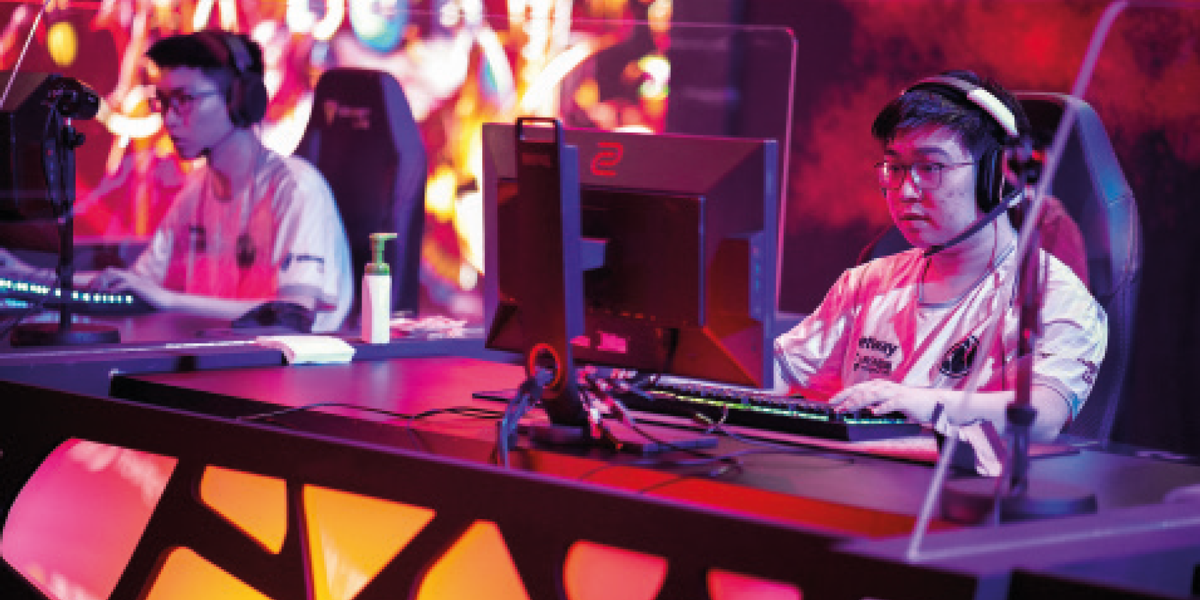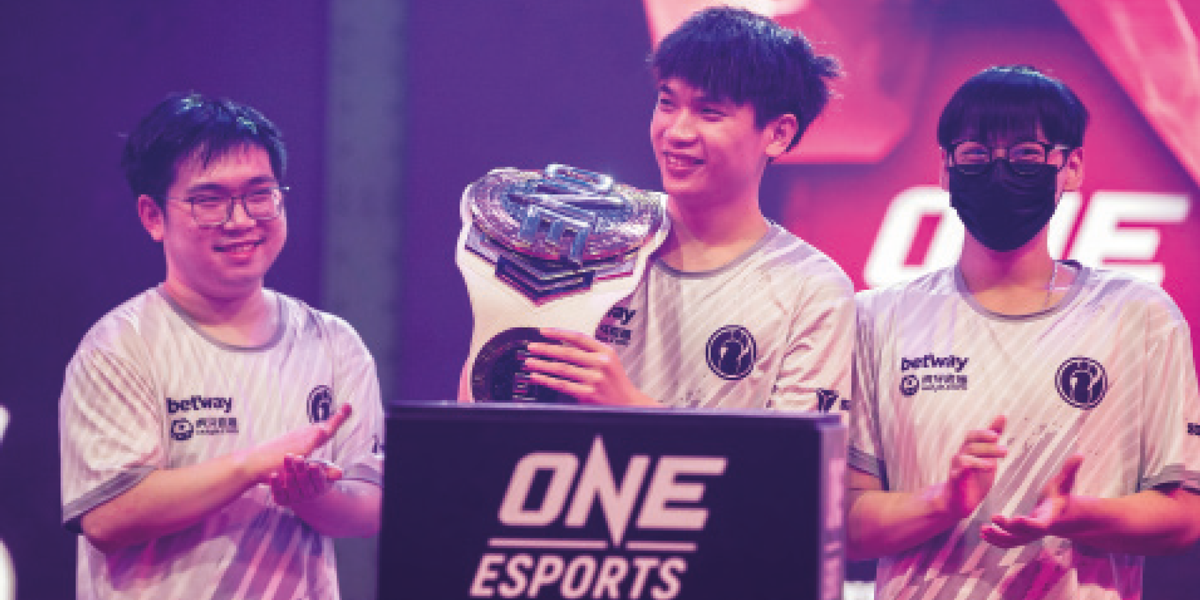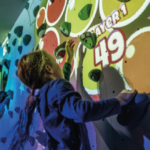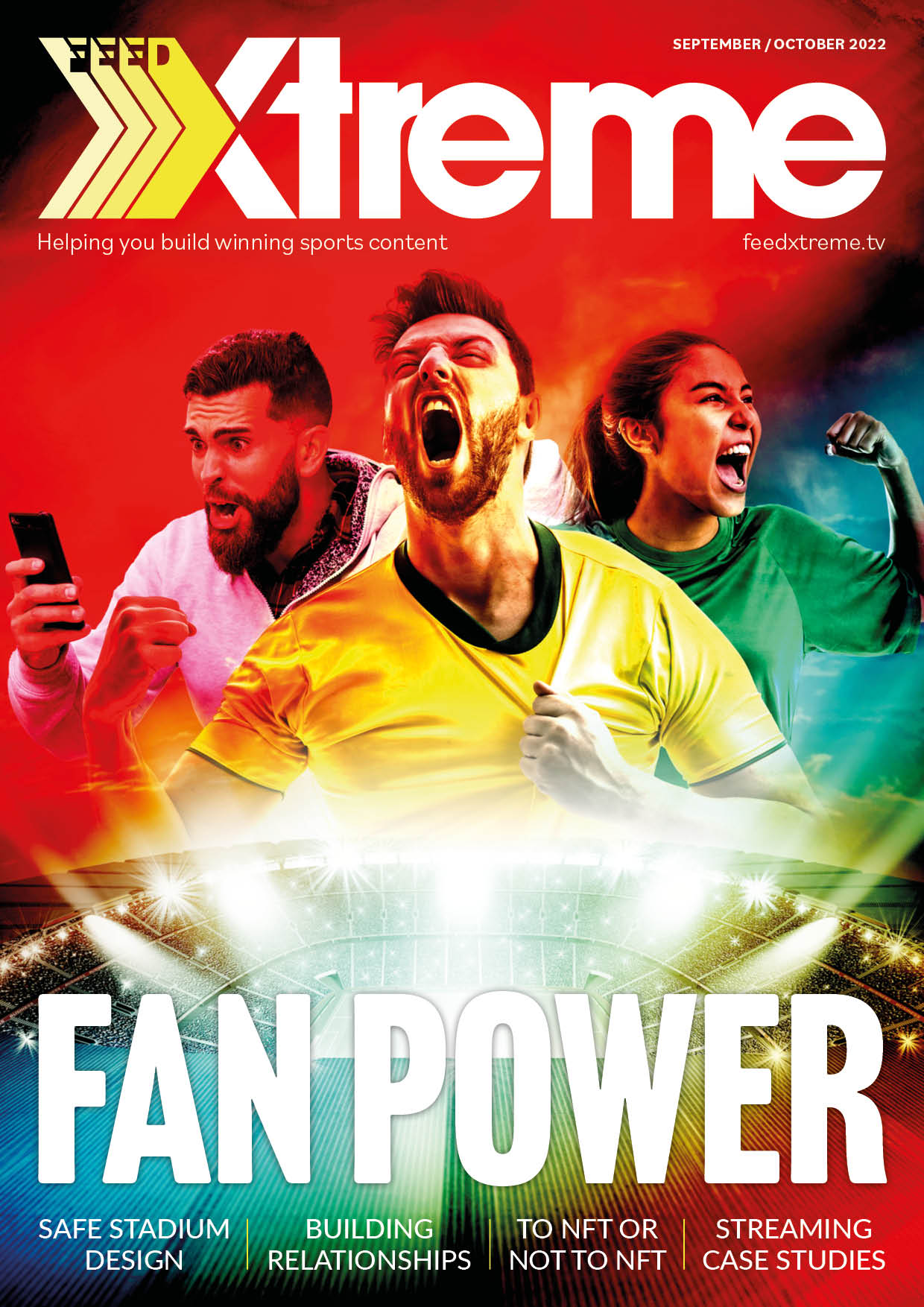Springtime in Singapore Major

Posted on Jul 23, 2022 by FEED Staff
Esports made its return to in-venue tournaments with this spring’s Dota 2 Singapore Major, produced by PGL
Pro gaming has weathered the past year better than most other activities. Esports is inherently decentralised, plus the industry has an ingrained willingness to be flexible about how it uses tech. With the pandemic potentially on the wane, this year’s esports calendar is bringing back in-venue productions.
This spring kicked off with the ONE Singapore Major, the first offline Dota 2 major since the beginning of the pandemic. Organised by ONE Esports, the Singapore Tourism Board and esports content producer PGL, the event featured 18 teams, competing from 27 March to 4 April at the Fairmont Singapore hotel. It was the first Dota 2 major to be broadcast in 4K/60fps, and the second-most successful Dota 2 major ever – peaking at 605,335 concurrent viewers.
Quality vs covid
Romanian event broadcaster PGL was founded in 2002, before becoming a pioneer producer in the early days of Eastern European esports.
“We are very proud to say that several generations of gamers have countless memories of PGL from the dawn of the Romanian esports scene,” says PGL CEO and founder, Silviu Stroie. “At some point, we realised that we had a lot to offer the global esports family. Subsequently, the past five years have been incredible for us. We’ve managed to host numerous events and, across a couple of games, some of the most successful tournaments ever.”
Like every other broadcaster, PGL was affected significantly by the Covid-19 pandemic. Travel stopped, venues shut down and esports was forced to revert to its all-digital roots. The company ended up going to online delivery for most of its schedule in 2020.
“Each industry experienced a series of challenges throughout this period – we had to adapt,” says Stroie. “This wasn’t a big problem for us, because we are known for our innovative way of doing things. The biggest difference is that we were doing a lot of remote production, with talents and teams being localised all over the world.”
Maintaining quality, despite the challenges, was PGL’s priority. It hosted successful online events, including the FIFA Summer Cup Series for Middle East/Africa and Asia, Quake Pro League Season 2, plus the PGL Apex Legends Showdown.
“We still do things how they are supposed to be done, and now we have a few backup plans for every production – the pandemic taught us that. Right now, we can comfortably say that 2020 was better than 2019.”
Esports made its return to in-venue tournaments with this spring’s Dota 2 Singapore Major, produced by PGL
Pro gaming has weathered the past year better than most other activities. Esports is inherently decentralised, plus the industry has an ingrained willingness to be flexible about how it uses tech. With the pandemic potentially on the wane, this year’s esports calendar is bringing back in-venue productions.
This spring kicked off with the ONE Singapore Major, the first offline Dota 2 major since the beginning of the pandemic. Organised by ONE Esports, the Singapore Tourism Board and esports content producer PGL, the event featured 18 teams, competing from 27 March to 4 April at the Fairmont Singapore hotel. It was the first Dota 2 major to be broadcast in 4K/60fps, and the second-most successful Dota 2 major ever – peaking at 605,335 concurrent viewers.
Quality vs covid
Romanian event broadcaster PGL was founded in 2002, before becoming a pioneer producer in the early days of Eastern European esports.
“We are very proud to say that several generations of gamers have countless memories of PGL from the dawn of the Romanian esports scene,” says PGL CEO and founder, Silviu Stroie. “At some point, we realised that we had a lot to offer the global esports family. Subsequently, the past five years have been incredible for us. We’ve managed to host numerous events and, across a couple of games, some of the most successful tournaments ever.”
Like every other broadcaster, PGL was affected significantly by the Covid-19 pandemic. Travel stopped, venues shut down and esports was forced to revert to its all-digital roots. The company ended up going to online delivery for most of its schedule in 2020.
“Each industry experienced a series of challenges throughout this period – we had to adapt,” says Stroie. “This wasn’t a big problem for us, because we are known for our innovative way of doing things. The biggest difference is that we were doing a lot of remote production, with talents and teams being localised all over the world.”
Maintaining quality, despite the challenges, was PGL’s priority. It hosted successful online events, including the FIFA Summer Cup Series for Middle East/Africa and Asia, Quake Pro League Season 2, plus the PGL Apex Legends Showdown.
“We still do things how they are supposed to be done, and now we have a few backup plans for every production – the pandemic taught us that. Right now, we can comfortably say that 2020 was better than 2019.”


Major success
The Singapore Major was a world premiere for PGL. As the first company to host a Dota 2 major since the start of the pandemic, the pressure was on. But PGL had hosted tournaments in Singapore previously, teaming up with regular event partner, Eliphant. Created as an organisation to boost gaming and events in south-east Asia, Eliphant is a major marketer and producer of the region’s game-related events, productions and tournaments.
“Being an offline event, we did most things just as we would have before,” says Stroie. “Still, there were some situations where we had to adapt, because human resources were pretty limited during that period of restrictions. We had to comply with safety rules, but it was a big success and a great experience.”
The pandemic made PGL rethink how to deliver a balance of entertainment formats through high-production video, encompassing gameplay, player cams and shoutcasters. The company’s return to in-venue production for the Singapore Major 2021 marked a new, more complex production scheme, including streaming content for viewers and players, as well as inside the venue. This combination of broadcast, live-stream and big-screen delivery will be rolled out for a variety of online, offline and hybrid events this year, as Covid-19 sheltering and social distancing restrictions relax.
To support its global gaming events schedule, PGL invested in four custom flyaway kits, built around Blackmagic Design’s Ursa Mini Pro 4.6K G2 cameras and Atem Constellation 8K.
The four identical kits form the foundation for PGL’s live productions, with bespoke playout and graphics packages devised for events. Each kit allows for SDI and fibre connectivity, while cameras are controlled from the production gallery through an Atem Camera Control panel. Live content is captured in 4K at 59.94fps, so all PGM feeds are consistent and broadcast-grade quality.
“In this industry, it’s not about surviving, it’s about being the best you can be. We have to innovate all the time. Esports enthusiasts are passionate – they don’t hesitate to tell you when it’s not your best day. Between tournaments, we are brainstorming to find new ways to present a game.”
So, what are the results of these discussions around innovation? Stroie isn’t saying.
“We have a lot of ideas, but are keeping them behind closed doors, for the moment. Nonetheless, we invite everyone to watch our broadcasts, because there will be new and exciting things to see each time.”
This article first featured in the Summer 2021 issue of FEED.
Gaming and Esports archives
Major success
The Singapore Major was a world premiere for PGL. As the first company to host a Dota 2 major since the start of the pandemic, the pressure was on. But PGL had hosted tournaments in Singapore previously, teaming up with regular event partner, Eliphant. Created as an organisation to boost gaming and events in south-east Asia, Eliphant is a major marketer and producer of the region’s game-related events, productions and tournaments.
“Being an offline event, we did most things just as we would have before,” says Stroie. “Still, there were some situations where we had to adapt, because human resources were pretty limited during that period of restrictions. We had to comply with safety rules, but it was a big success and a great experience.”
The pandemic made PGL rethink how to deliver a balance of entertainment formats through high-production video, encompassing gameplay, player cams and shoutcasters. The company’s return to in-venue production for the Singapore Major 2021 marked a new, more complex production scheme, including streaming content for viewers and players, as well as inside the venue. This combination of broadcast, live-stream and big-screen delivery will be rolled out for a variety of online, offline and hybrid events this year, as Covid-19 sheltering and social distancing restrictions relax.
To support its global gaming events schedule, PGL invested in four custom flyaway kits, built around Blackmagic Design’s Ursa Mini Pro 4.6K G2 cameras and Atem Constellation 8K.
The four identical kits form the foundation for PGL’s live productions, with bespoke playout and graphics packages devised for events. Each kit allows for SDI and fibre connectivity, while cameras are controlled from the production gallery through an Atem Camera Control panel. Live content is captured in 4K at 59.94fps, so all PGM feeds are consistent and broadcast-grade quality.
“In this industry, it’s not about surviving, it’s about being the best you can be. We have to innovate all the time. Esports enthusiasts are passionate – they don’t hesitate to tell you when it’s not your best day. Between tournaments, we are brainstorming to find new ways to present a game.”
So, what are the results of these discussions around innovation? Stroie isn’t saying.
“We have a lot of ideas, but are keeping them behind closed doors, for the moment. Nonetheless, we invite everyone to watch our broadcasts, because there will be new and exciting things to see each time.”
This article first featured in the Summer 2021 issue of FEED.
Gaming and Esports archives



